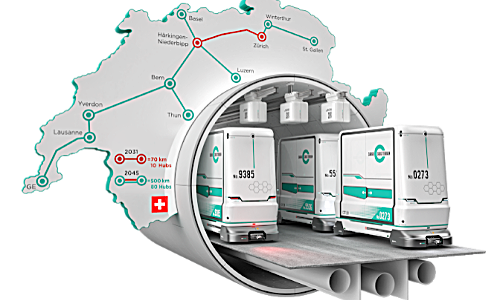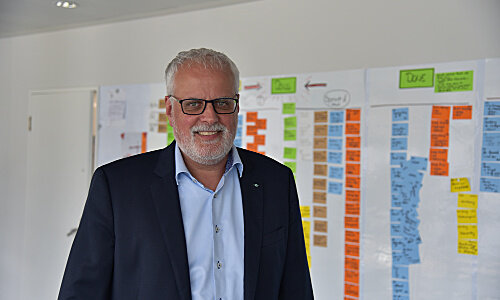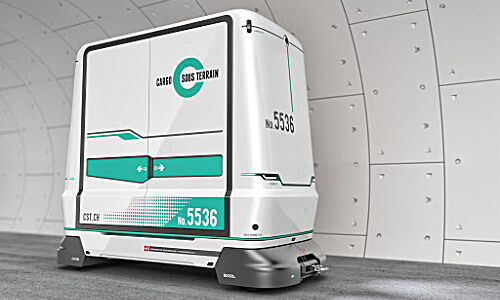Switzerland's plans for a vast underground cargo network is taking shape. Like the landmark 19th-century project to build the Gotthard Tunnel, the new transport project has extensive ties with the alpine nation's banking system.
The Swiss government expects freight haulage to jump by 37 percent in the next ten years – a rate that will crash Switzerland's already-clogged road network. A group of eight Swiss experts is drawing up the solution: by 2050, the majority of goods shipped in Switzerland will be transported in a 500-kilometer long underground system, dubbed Cargo sous terrain, or CST.

If it sounds utopian, the Swiss government asked the transportation department to realize a law for underground cargo shipping by year-end, following a consultation period. The draft is set to hit parliament and could be written into law by the end of next year. As soon as the law enters force, the CST can flesh out the project, Klaus Juch (pictured below), the hub's project head told finews.com. He has 100 million Swiss francs ($107 million) as his disposal, from a broad group of investors.

Groundbreaking In 2026
Groundbreaking on the project's first leg, between Zurich and Haerkingen roughly 70 kilometers due east, is set for 2026. Budgeted at 3 billion francs, the first phase is financed entirely privately – as is the whole project. The government's involvement is limited to enacting the law which gives the project's backers planning security.
Its investors underscore the project's importance for Switzerland: major retailers Coop and Migros, logistics firms DSV, Rhenus, SBB Cargo, Swiss Post, Swisscom, and the city of Zurich are the main backers. «Cargo sous terrain is a huge pioneering project for Switzerland,» said Juch, who previously worked for Bern's BLS regional railway.
Attractive Investment
Four banks are also backing the project – including Credit Suisse, which was founded in 1856 to help finance the Gotthard railway tunnel, inaugurated 26 years later. Cargo sous terrain isn't quite as dramatic, but after its first 60-kilometer phase is finished in 2031, the project will require an additional 30 billion francs to complete the network, scheduled for 2050.
The financing is currently being hammered out, said Stefan Schraner (pictured below), a former UBS private banker who is responsible for Cargo sous terrain's investor relations: «The numerous financial investors are on board because it's a long-term Swiss infrastructure project,» he told finews.com. The investment represents an attractive opportunity for investors hamstrung by negative interest rates.

Attracting ESG Investors
As soon as the government has enacted the infrastructure law, the project will go on a roadshow in Switzerland and abroad. It has another powerful pull: the 33 billion franc undertaking is an ESG investment, meaning it adheres to certain environmental, social, and governance criteria.
Banks are thirsty for such investments, and pension funds represent another vast pool of potential investors – because they are permitted to invest in infrastructure. The project's financial architecture is tightly synced to the planning process, with the federal law as the basis.
Financing Tied To Targets
The investment stands out in Switzerland, where aside from energy and alpine cable car operators, infrastructure is state-funded. Cargo sous terrain emphasizes the efficient use of capital as well as ensuring future profitability due to anchor investors (and future clients) Migros, Coop, or the postal service.
Cargo sous terrain's critics predict an economic disaster and expect the Swiss government to include a clause that ensures that Swiss taxpayers won't end up shouldering the project. CST plans to underpin the financial structure of the deal with targets on cash flow and adhering to deadlines as well as capping spending.
Foreign Interest
The first phase, when concluded, is budgeted to be profitable on its own, according to Cargo sous terrain – it has to be, in case the rest of the project founders. The biggest challenge for the 300 engineers now working on the project is its technology.
Cargo sous terrain is being closely watched abroad. «The potential to export this is huge. But the entire system is interesting, not just the tunnels,» Juch said. «But first we have to prove we can connect the new dimension in Switzerland.»



































